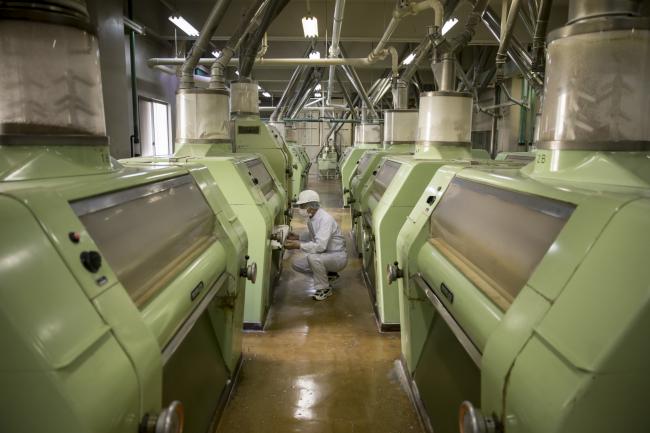(Bloomberg) -- Japan’s machinery orders fell for the first time since January and at a faster rate than expected, casting doubt on the strength of capital investment over the coming months amid a global economic slowdown.
Core machinery orders, a leading indicator of capital expenditure, fell 7.8% in May from April, its biggest fall in eight months, according to Cabinet Office data released Monday. Economists had estimated a 3.8% drop. Orders slipped 3.7% from the previous year.
Key Insights
- Capital spending has been an important prop for the economy in recent quarters, supporting growth despite a slump in exports as global growth slows. The sharp drop in machine orders could be an early signal that capital expenditure will soften.
- "I think it’s going to be difficult for capital spending to be a strong pulling force for Japan’s economy," said Norio Miyagawa, senior economist at Mizuho Securities, pointing to a highly uncertain outlook for investment plans amid soft overseas demand.
- The latest data show machine orders fell in both the manufacturing and non-manufacturing sectors. Capital spending by non-manufacturers has so far been more robust than manufacturing capex, as Japan’s ongoing labor shortage boosts the need for automation and the 2020 Olympics offers a tailwind of demand.
- Economists caution against spotting a firm trend in one month’s figures from a volatile set of data. Still, the escalation of trade friction between the U.S. and China in May is one of the factors that will have contributed to some companies delaying investment plans, even if putting a figure on the trade war impact is extremely difficult.
What Bloomberg’s Economists Say
“For 2Q, we expect core orders to more or less recoup 1Q’s 3.2% drop. That would be far from the projection by corporates (+15.7%) -- underlining the external pressure on the economy from the U.S.-China trade war."Yuki Masujima, Japan economist Click here to read more
Get more
- The current account balance for May showed a surplus of 1.59 trillion yen, compared with a 1.40 trillion yen surplus estimated by economists.
- The fall in the current account surplus from April reflected a deterioration in the goods trade and primary income balances.
- A May record for the number of foreign visitors to Japan contributed to a positive services balance.
(Adds economist comments.)
